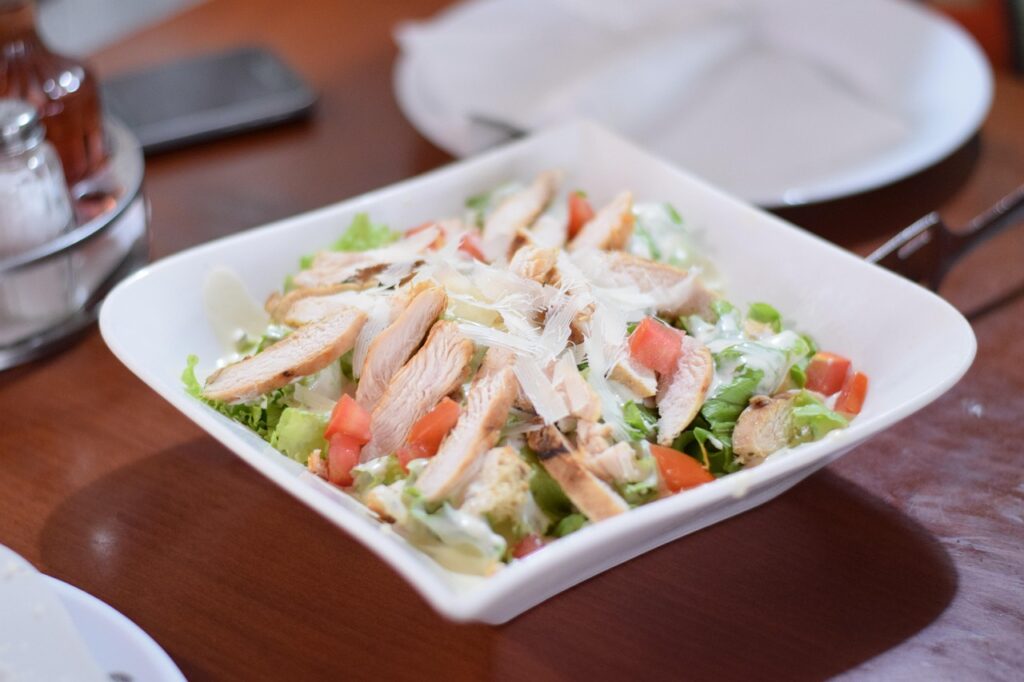Breaking Through a Weight Loss Plateau: A Complete Guide to Restarting Your Progress
Contents
- 1 Breaking Through a Weight Loss Plateau: A Complete Guide to Restarting Your Progress
- 1.0.0.0.0.1 Read DISCLAIMER
- 1.0.0.0.0.2 The material presented here is for general informational and educational purposes only and is not medical advice. Although we attempt to provide current and accurate information, this blog should not be used as a replacement for professional medical consultation, diagnosis, or treatment. In all cases, consult your physician or an accredited medical practitioner with regards to any medical condition or treatment. Do not ignore professional medical advice or wait for it on the basis of information provided by this blog. In a medical emergency, call emergency services immediately.
- 1.1 Understanding What a Weight Loss Plateau Really Means
- 1.2 Why Plateaus Happen
- 1.3 The Emotional Toll of Hitting a Plateau
- 1.4 Reassessing Your Current Routine
- 1.5 The Role of Nutrition in Breaking Plateaus
- 1.6 Redefining Your Workout Strategy
- 1.7 The Power of Rest and Recovery
- 1.8 The Psychological Reset
- 1.9 Small Tweaks That Create Big Changes
- 1.10 The Role of Stress and Hormones
- 1.11 Breaking the Scale Obsession
- 1.12 Reconnecting With Your “Why”
- 1.13 The Long-Term Perspective
- 1.14 Conclusion: Turning the Plateau Into Progress
- 1.15 FAQs with Answers
Struggling with a weight loss plateau? Learn why it happens and discover proven strategies to restart your progress, boost metabolism, and stay motivated.
Read DISCLAIMER
The material presented here is for general informational and educational purposes only and is not medical advice. Although we attempt to provide current and accurate information, this blog should not be used as a replacement for professional medical consultation, diagnosis, or treatment. In all cases, consult your physician or an accredited medical practitioner with regards to any medical condition or treatment. Do not ignore professional medical advice or wait for it on the basis of information provided by this blog. In a medical emergency, call emergency services immediately.
Weight loss is rarely a straight, downward-sloping line on a graph. Instead, it looks more like a staircase, with periods of movement followed by frustrating plateaus. You may start your journey full of energy, seeing the numbers on the scale move week after week, only to suddenly hit a wall where nothing seems to change. You’re eating the same, exercising as before, but your body refuses to budge. This is what’s commonly called a weight loss plateau, and it is one of the most discouraging stages of the journey. Yet, it is also one of the most important.
A plateau isn’t the end of progress; it’s a signal from your body that it has adapted to the new lifestyle you’ve created. To break through, you need to shift strategies, rethink habits, and find new ways to keep your body engaged. This guide dives deep into the science, psychology, and strategies for breaking through weight loss plateaus, helping you transform frustration into renewed momentum.
Understanding What a Weight Loss Plateau Really Means
A plateau is not failure; it’s adaptation. When you first start losing weight, your body responds to the changes in calorie intake and activity level quickly. But the human body is an incredible survival machine. It doesn’t like drastic or continuous change, especially when it perceives a threat to its energy reserves. Over time, metabolism slows slightly, hunger hormones shift, and your body learns how to function on fewer calories.
Think of it like driving a car down a hill. At first, gravity does the work for you, and it feels effortless. But eventually, the road flattens, and you have to press the gas pedal to keep moving forward. That “flat stretch” is the plateau, and pressing the gas means changing the way you eat, move, or recover.
Why Plateaus Happen
There are several reasons you might hit a plateau, and often it’s a combination rather than a single factor. Caloric burn decreases as you lose weight because a smaller body requires less energy to function. Hormonal changes, such as reduced leptin levels, can increase hunger and decrease satiety. Psychological adaptation plays a role too—habits become repetitive, workouts feel less challenging, and motivation dips.
Your body is also designed to protect itself from perceived starvation. As fat stores shrink, your body becomes more efficient at using energy, almost like upgrading to a fuel-efficient engine. While this is great for survival, it can slow down weight loss progress.
The Emotional Toll of Hitting a Plateau
The hardest part of a plateau often isn’t physical—it’s emotional. You may feel like all your efforts are wasted, or worse, you begin to doubt your ability to continue. It can feel like running on a treadmill: expending energy but not moving forward. This mental fatigue can lead people to abandon their goals entirely.
It’s important to reframe plateaus as part of the process, not a sign of failure. Every successful weight loss story includes moments of standstill, and those who succeed are the ones who learn how to pivot instead of quitting.
Reassessing Your Current Routine
Breaking a plateau begins with honest reflection. Are you tracking food intake as carefully as you did at the beginning? Portion sizes may have crept upward, or small indulgences may have slipped in unnoticed. Workouts may have become predictable, with less intensity or variety than before.
Sometimes, you’ve simply outgrown your current plan. What worked to help you lose the first 10 pounds might not be enough for the next 10. That doesn’t mean your earlier efforts were wrong—it means your body is evolving, and your strategies need to evolve too.
The Role of Nutrition in Breaking Plateaus
Nutrition remains the cornerstone of weight management. At a plateau, it may help to adjust your calorie intake slightly, but the key isn’t drastic restriction. Instead, focus on nutrient density and variety. Shifting macronutrient ratios, such as increasing protein or adding more fiber-rich foods, can reignite fat loss while preserving muscle.
Sometimes, intermittent fasting or cycling calorie intake across the week can give your metabolism the “nudge” it needs. Think of it as surprising your body—when it can’t predict what’s coming, it adapts less efficiently, keeping the fat-burning process alive.
Hydration also plays a critical role. Water helps regulate appetite, supports digestion, and improves metabolic efficiency. Many people confuse thirst with hunger, leading to extra calories that stall progress.

Redefining Your Workout Strategy
Exercise plateaus happen just like dietary ones. Your body becomes skilled at repeating the same routines, meaning it burns fewer calories doing them. This is why progression is essential. Increasing intensity, trying new forms of exercise, or incorporating strength training can make a dramatic difference.
Strength training is particularly powerful because it builds lean muscle, which increases resting metabolic rate. The more muscle you carry, the more calories you burn even at rest. High-intensity interval training (HIIT) is another tool that challenges the body in new ways, pushing it out of its comfort zone.
Imagine your fitness journey like a video game. At first, you play on “easy mode,” learning the controls. Over time, you level up, and the game introduces tougher challenges. To keep progressing, you must adapt your strategy.
The Power of Rest and Recovery
Ironically, one of the reasons people hit plateaus is because they push themselves too hard. Overtraining raises stress hormones like cortisol, which encourages fat storage, especially around the belly. Rest and sleep are just as important as diet and exercise for breaking through plateaus.
Quality sleep helps regulate appetite hormones like ghrelin and leptin, making it easier to stay on track with eating. Recovery days allow muscles to repair, grow, and become stronger, leading to better performance and more calorie burn in the long run.
The Psychological Reset
Mindset can be the biggest barrier or the most powerful ally in overcoming a plateau. If you approach it with frustration, you risk falling into self-sabotaging habits. But if you see it as a challenge, an opportunity to grow stronger mentally and physically, the plateau becomes a turning point rather than a dead end.
Visualization techniques, journaling, and celebrating non-scale victories (such as improved energy, looser clothing, or better endurance) can keep motivation alive. Sometimes, shifting your focus away from the scale and toward overall health makes it easier to stay consistent until the plateau breaks.

Small Tweaks That Create Big Changes
Often, it isn’t about overhauling your entire routine but making small adjustments. Eating a protein-rich breakfast instead of skipping it, walking after meals to stabilize blood sugar, or adding mindful eating practices can reignite progress. Even changing the time of day you exercise can shock your body into responding differently.
These tweaks work because they disrupt routine. The body thrives on consistency for health but requires variety to continue progressing toward fat loss goals.
The Role of Stress and Hormones
Chronic stress is a silent contributor to weight plateaus. Elevated cortisol not only encourages fat storage but also increases cravings for high-calorie, comfort foods. Managing stress through meditation, breathing exercises, or creative outlets can make a bigger difference than most people realize.
Hormones like insulin, thyroid hormones, and sex hormones also play significant roles in weight regulation. While you can’t control them entirely, you can influence them through sleep, nutrition, and balanced exercise. Recognizing that weight loss isn’t just about willpower but also about biology can reduce frustration and self-blame.
Breaking the Scale Obsession
One of the biggest mistakes during a plateau is focusing solely on the scale. Fat loss can continue even if the number doesn’t change because you may be gaining muscle or losing water weight at the same time. Progress photos, measuring tape, and paying attention to how clothes fit provide a more accurate picture of change.
Think of the scale as one tool in the toolbox, not the whole toolkit. Relying only on it can create unnecessary stress and distract from the bigger picture of health.
Reconnecting With Your “Why”
When progress stalls, it’s a good time to revisit why you started. Was it to feel more confident, improve health, increase energy, or be able to play with your kids without exhaustion? Reconnecting with this deeper motivation can provide the emotional fuel to push through tough phases.
Weight loss is not just about shedding pounds; it’s about gaining life. Keeping this perspective helps shift the focus from frustration to determination.
The Long-Term Perspective
Plateaus remind us that weight loss is not a sprint but a marathon. Quick fixes may work temporarily, but sustainable habits win over time. By embracing flexibility and patience, you learn how to maintain progress rather than chasing short-lived results.
The plateau becomes less about breaking through and more about building resilience. Every adjustment you make teaches you how to listen to your body and work with it instead of against it.
Conclusion: Turning the Plateau Into Progress
A weight loss plateau isn’t a wall—it’s a checkpoint. It’s your body asking you to level up, to refine your approach, and to discover new strengths you didn’t know you had. Breaking through requires more than just changing diet or exercise; it requires patience, creativity, and a mindset that embraces challenge as growth.
The next time you find yourself stuck, don’t view it as failure. Instead, see it as proof that you’ve already made significant progress. You’ve changed enough to make your body adapt—and with the right adjustments, you’ll change enough to move forward again.
FAQs with Answers
- What is a weight loss plateau?
A weight loss plateau is a phase where your body stops losing weight despite following the same diet and exercise routine. It happens because your metabolism adapts to lower calorie intake and improved efficiency. - How long do weight loss plateaus usually last?
Plateaus can last anywhere from a few days to several weeks. The duration depends on individual metabolism, lifestyle, and whether changes are made to re-stimulate fat loss. - Why does my weight stop dropping even when I eat the same?
When you lose weight, your body requires fewer calories to function. Over time, it adapts to the new intake, making weight loss stall. Small dietary or activity adjustments are often needed. - Can stress cause a weight loss plateau?
Yes, stress increases cortisol, a hormone that promotes fat storage and boosts cravings. Chronic stress can slow metabolism and make it harder to lose weight. - Is it normal to hit a plateau during weight loss?
Absolutely. Almost everyone experiences a plateau at some point. It’s a natural sign of your body adjusting, not an indication that you’ve failed. - Does eating more break a plateau?
Sometimes, yes. Strategic calorie cycling or “refeeds” can reset metabolism, signaling your body that it’s not in starvation mode, which can reignite fat loss. - Should I exercise more during a plateau?
Not necessarily. Increasing intensity, trying new workouts, or adding strength training can help, but overtraining may backfire. Balance is key. - Why is strength training important for breaking plateaus?
Strength training builds lean muscle, which boosts resting metabolic rate. More muscle means your body burns more calories even at rest, helping overcome plateaus. - Can lack of sleep cause a plateau?
Yes. Poor sleep disrupts hunger hormones like leptin and ghrelin, leading to cravings and slower metabolism. Quality rest is essential for continued fat loss. - How do hormones affect weight loss plateaus?
Hormones like insulin, thyroid hormones, and cortisol influence metabolism and fat storage. Imbalances can slow progress, making plateaus more likely. - Should I stop weighing myself during a plateau?
Not entirely, but don’t rely only on the scale. Track progress with measurements, clothing fit, energy levels, and fitness improvements for a clearer picture. - Is intermittent fasting effective for plateaus?
It can be. Intermittent fasting introduces variety in calorie intake and timing, which may help restart weight loss by surprising the body’s metabolism. - Do small changes really make a difference in breaking plateaus?
Yes. Simple tweaks like increasing protein, drinking more water, or changing workout timing can disrupt routine and restart progress. - How do I stay motivated during a plateau?
Focus on non-scale victories, revisit your “why,” celebrate small wins, and view the plateau as a checkpoint rather than failure. Mindset plays a huge role. - Will my weight loss plateau eventually end on its own?
It can, but actively making adjustments speeds up the process. Waiting too long without changes may prolong the plateau and increase frustration.

Yay google is my world beater helped me to find this great website ! .
Just wanna comment on few general things, The website style is perfect, the subject matter is really fantastic. “Believe those who are seeking the truth. Doubt those who find it.” by Andre Gide.
Betwebluck, huh? It’s got potentials, I liked the interface and the overall feel is cool. Give it a try and see if it gives you luck. betwebluck
Living the VIP life with Slotmaxvip! The rewards are awesome, and the games are top-notch. If you’re serious about your slots, this is the place to be. Level up your game at slotmaxvip.
W88ngo has been around for ages. Always reliable, always got a good selection. Solid choice for your betting needs. Classic! I found my way to w88ngo.